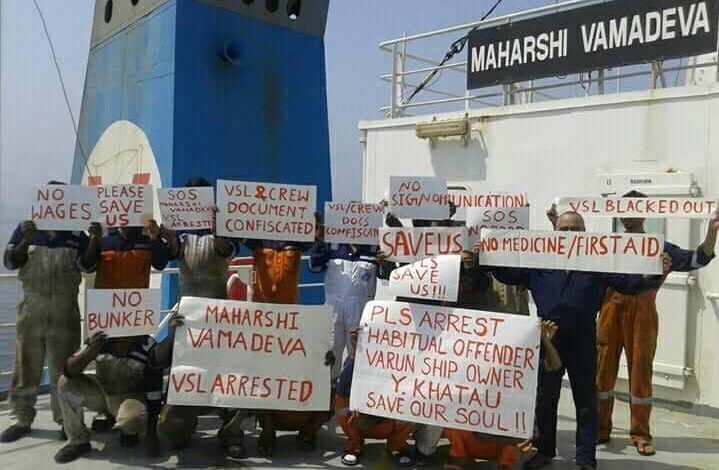Arbitration promoted as a way to resolve human rights abuses at sea

On the UN International Day for the Right to The Truth Concerning Gross Human Rights Violations and for the Dignity of Victims, the UK-based charity Human Rights at Sea, in partnership with global law firm Shearman & Sterling LLP, is today launching a jointly developed legal project to facilitate the resolution of disputes concerning human rights abuses at sea using international arbitration.
The project’s principal aim is to provide victims of human rights abuses at sea with access to an effective remedy, while at the same time combating impunity for the perpetrators of such abuses.
The project is driven by the concept that an arbitration-based mechanism of redress for human rights abuses could significantly improve human rights protection in the maritime space, notably, by providing a neutral and visible forum in which human rights issues can be resolved as well as an efficient procedure that is both expedient and financially accessible to victims. The project is an adjudicative process that is highly specialised and tailored to the sensitivities of human rights issues as well as to the particularities of the maritime space and features binding arbitral awards that would be enforceable internationally.
Human Rights at Sea’s CEO, David Hammond told Splash: “It is a victim-centred approach and mixes a previously purely commercial approach to disputes with new approaches by civil society in support of victims.”
The arbitration mechanism under development is designed principally to improve the situation of victims of human rights abuses at sea. The goal is to provide victims with an additional mechanism of redress, alongside those that already exist such as national or regional courts, in which they can choose to bring their human rights claims.
This mechanism would address claims arising from existing and established international law and principles for the protection of human rights. It would not require any new substantive human rights protections, nor would any new substantive law be necessary.
At the core of this arbitration-based mechanism would be a network of stakeholders active or directly interested in maritime commerce, including flag states, port and coastal states and businesses. A critical mass of players representing some or all of these interests will be invited to provide open offers of consent to arbitrate human rights disputes. Such offers would be capable of acceptance by any party alleging a human rights abuse by the offeror, through the aggrieved party’s filing of an arbitration claim.
The ensuing arbitration proceedings would be administered by a dedicated ‘human rights at sea’ arbitration institution, which would, among other things: promulgate a set of procedural rules specifically tailored for human rights disputes; maintain a roster of specially qualified human rights arbitrators; and oversee the constitution of arbitral tribunals including by resolving any challenges to the appointment of arbitrators.
With the project’s formal launch today there is also the circulation of a white paper setting out the broad parameters of the arbitration-based mechanism of redress being proposed.
Based on the feedback gathered, the concept will be further developed in subsequent stages, including through the circulation of draft model offers of consent, draft model arbitration agreements and draft arbitration rules.
Dr Yas Banifatemi, Partner at Shearman & Sterling, commented: “The project we have co-developed with Human Rights at Sea is a groundbreaking development, not only for the protection of human rights internationally, but also for the practice of international arbitration. This is yet another example of the significant value that arbitration has, among other ways, in helping to bring justice and the rule of law to people and to spaces that may not otherwise have sufficient access to them. We are very proud of this effort and are excited to see how it will progress through the next stages of development.”
